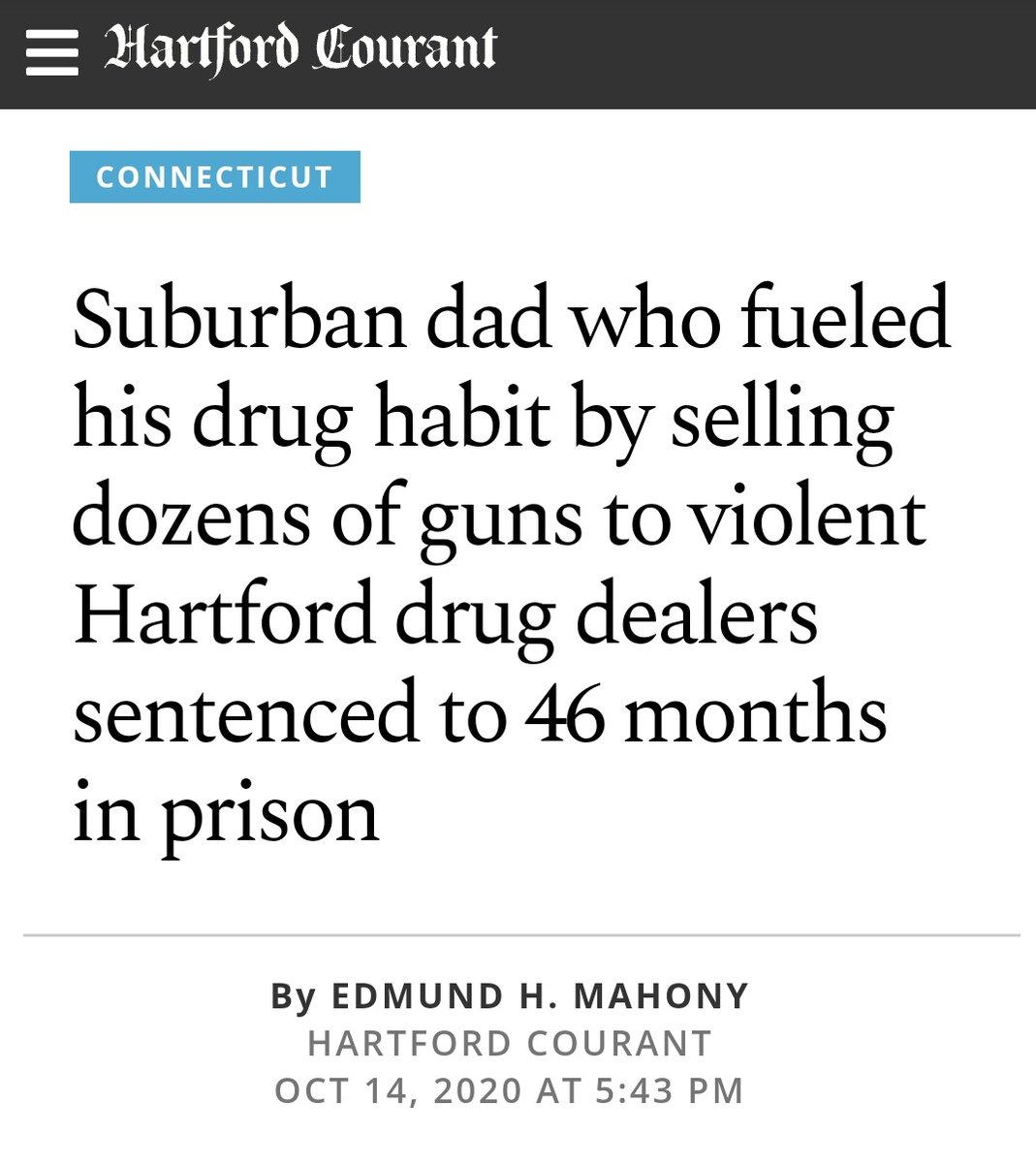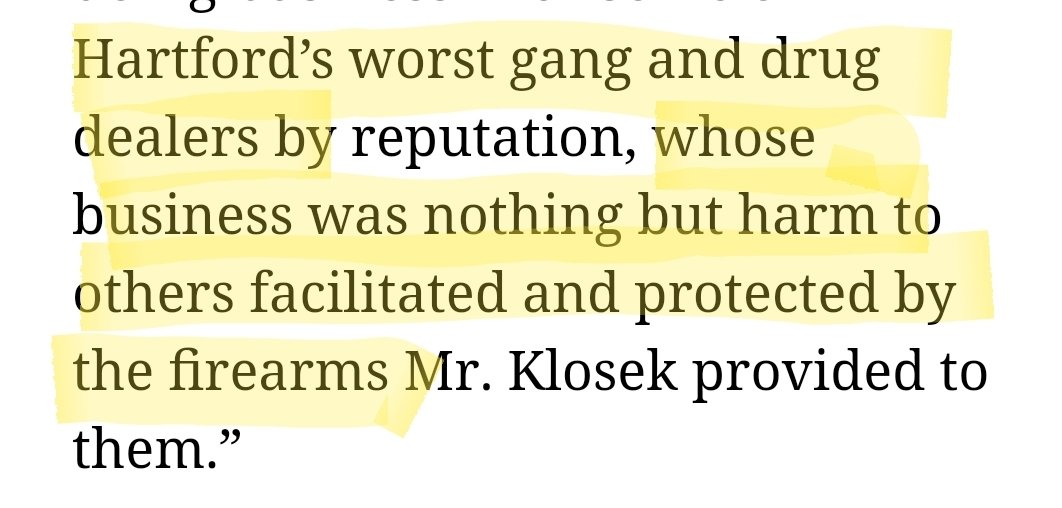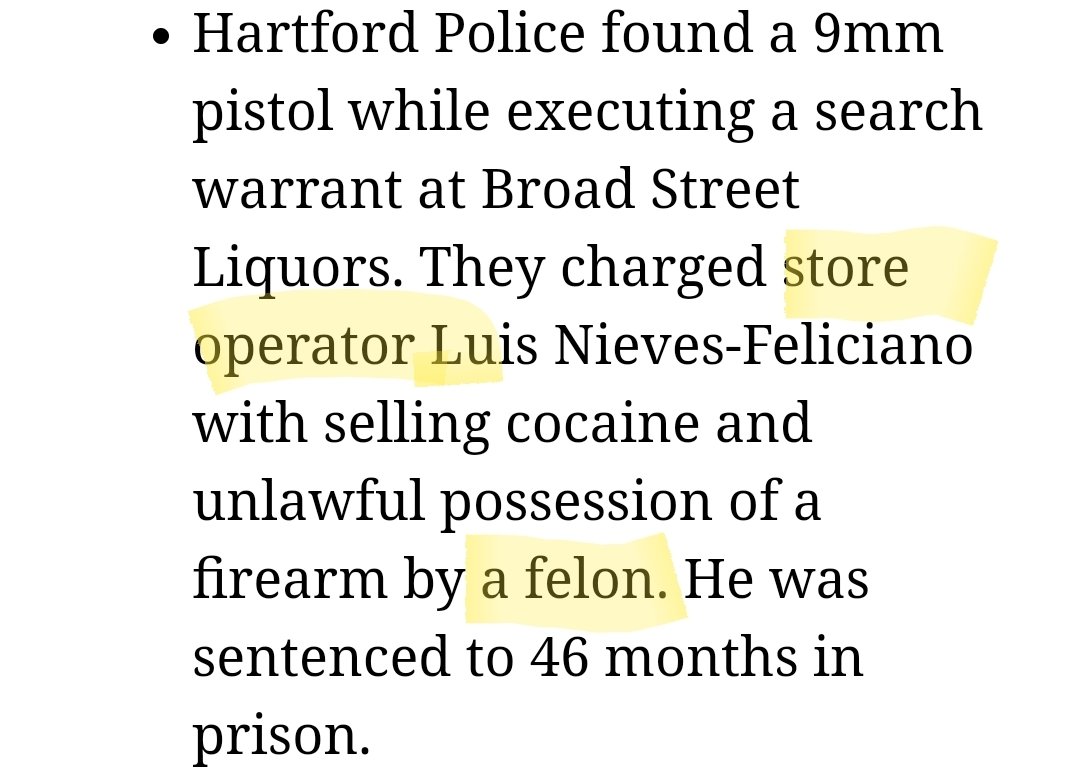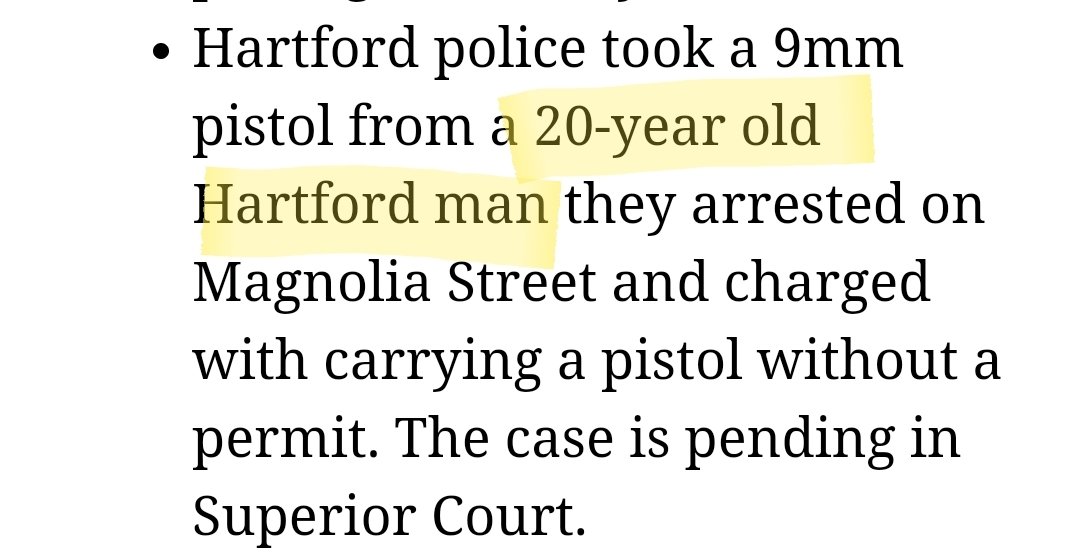The other day, @constanz_a was pointing out how much room this story makes for this guy& #39;s humanity and how little it makes for the humanity of the people who bought the guns:
I mean, here& #39;s how the dude is described and referred to:
The folks who bought the guns, on the other hand? Do they have children? Are they driven by addiction or other factors? We will never know.
Does Reyes have kids? Does he live in the suburbs? Is he usually a stand-up guy except for the crimes?
What about these guys? Where& #39;s the compassion for their circumstances? And does the white gun dealer have an unflattering nickname?
I don& #39;t mean to suggest, as many folks have, that Klosek should have gotten heavier time or that his addiction doesn& #39;t matter. On the contrary, I want to know why all the Latinx Hartford residents in this story don& #39;t get the same humanizing treatment.
Someone in Hartford politics, trying to emphasize the seriousness of our current street violence, recently told me, "There are a lot of very bad, very violent people in this city." And while that& #39;s not wrong, exactly, it misses the point in the same way this article does:
People who do violence in Hartford are not just faceless members of a horde, existing only to do crime. They are people. They have children and families and stories. Thinking of them as only their worst acts makes policing seem like the only response to this violence:
"If we can just root out these fundamentally bad people, order will be restored." But that supposes that the bad actors are just defective, and not the inevitable product of their environment. If that were the case, violence wouldn& #39;t be a recurring problem.

 Read on Twitter
Read on Twitter















